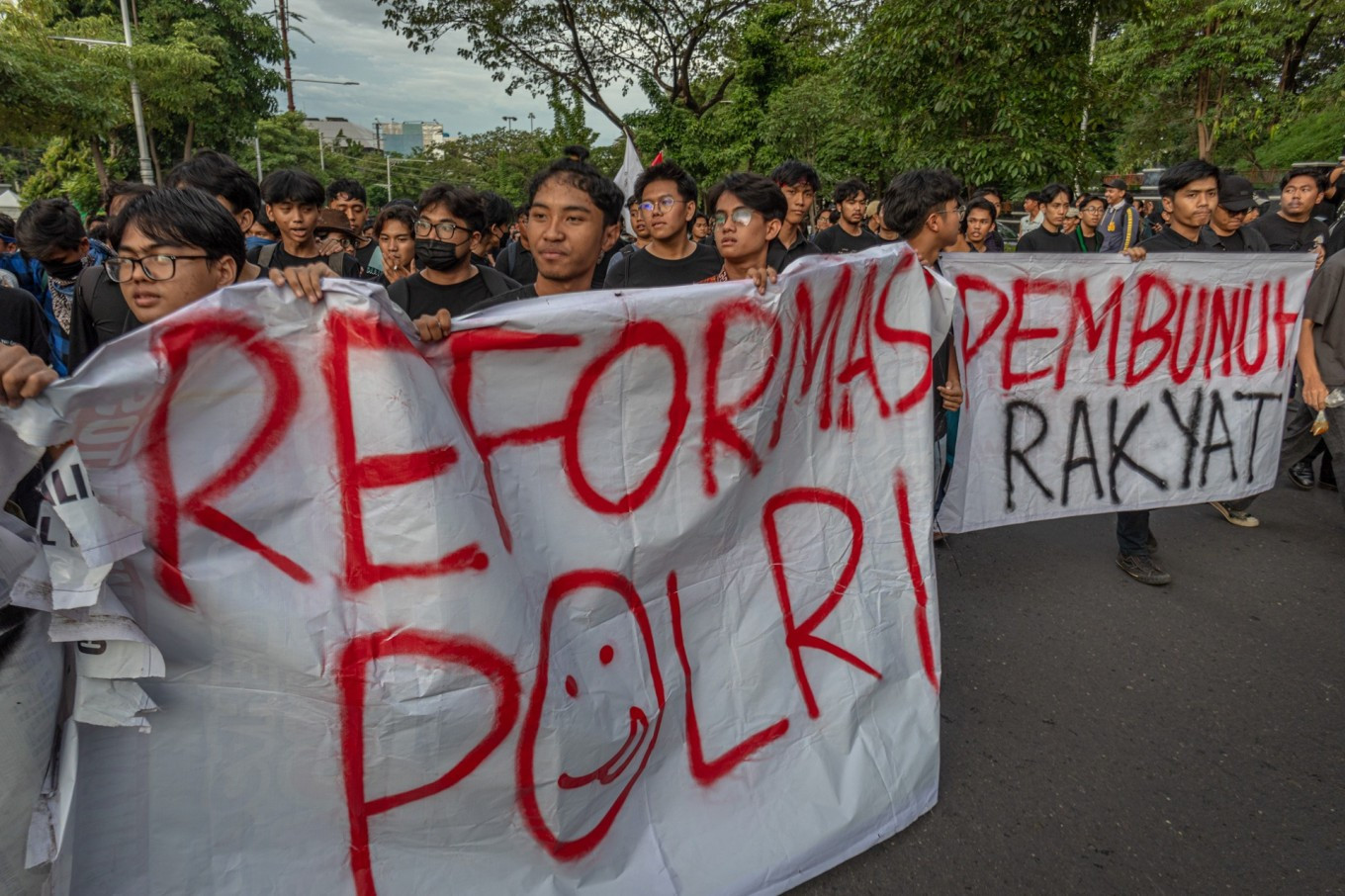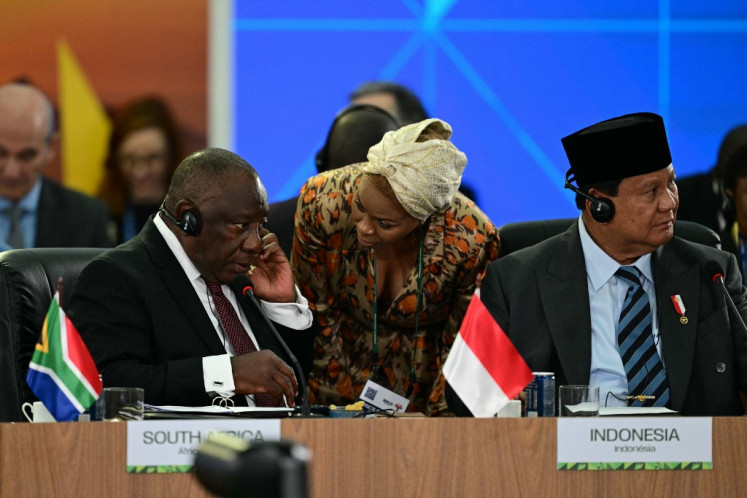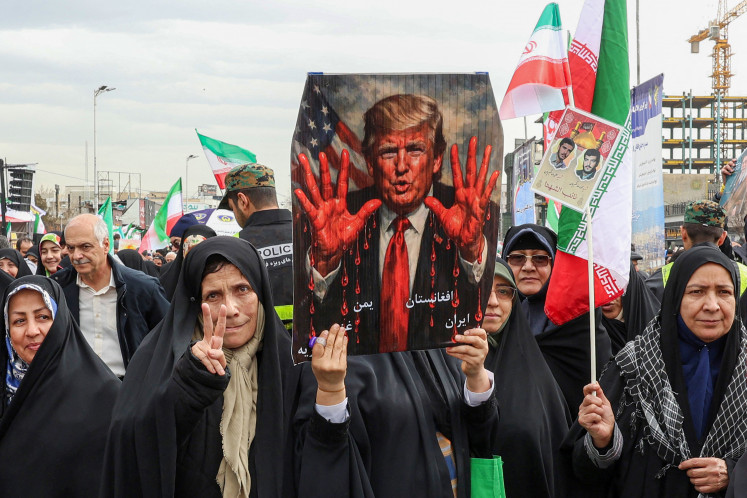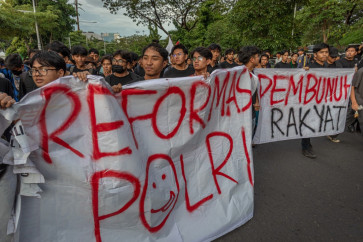Popular Reads
Top Results
Can't find what you're looking for?
View all search resultsPopular Reads
Top Results
Can't find what you're looking for?
View all search resultsPolice, democracy, and the paradox of delayed reform
Public surveys confirm that the majority of respondents believed bribery existed within the police force, with many reporting direct experience or knowledge of the practice.
Change text size
Gift Premium Articles
to Anyone
O
ne of the most frequently used slogans since the presidency of Joko “Jokowi” Widodo is “policing democracy.” Introduced by former National Police chief Tito Karnavian in 2016, the concept is simple: the police must serve as a pillar of democracy, safeguarding civil liberties, remaining neutral and being responsive to the public.
This idea seems noble, but its journey from the Jokowi era to the present under President Prabowo Subianto reveals a wide gap between concept and consistent practice.
During his 2016–2019 term, Tito popularized the term, arguing the police were no longer mere security forces but facilitators of democracy. Yet on the ground, the reality was the opposite: repression of student demonstrations, the criminalization of activists and biased law enforcement during the 2019 elections. Instead of protecting civil liberties, the police often functioned as guardians of political stability.
Idham Azis (2019–2021) inherited a post-election situation and the COVID-19 pandemic. The police’s focus shifted to social control, particularly enforcing large-scale social restrictions. Crucially, harsher enforcement was directed at the grassroots rather than at elites who violated the rules. Here, policing democracy shifted to policing stability, prioritizing order and control, often at the expense of a sense of justice.
Idham’s successor, Listyo Sigit Prabowo, championed the Presisi (Predictive, Responsible, Transparent and Just) vision. While digitization of services, such as electronic ticketing, was commendable, the high-profile 2022 Ferdy Sambo case revealed an internal power network that caused public trust to plummet. Furthermore, the handling of protests against the Omnibus Law and student demonstrations remained marred by police violence. The Presisi vision ultimately failed to break through the old repressive culture.
Entering the Prabowo era, Listyo remains at the helm of the National Police. Almost simultaneously, two reform initiatives emerged in the wake of the late August uprising. First, President Prabowo established an independent police reform team, involving civil society figures, academics and legal practitioners such as former chief security minister Mahfud MD, for external evaluation and strategic recommendations. Second, the National Police under Listyo launched an internal reform team, consisting of 52 officers, as part of the National Police Grand Strategy 2025–2045.
The emergence of these two teams raises immediate questions: Was the President unaware of the internal plan? Or did the National Police intend to demonstrate independence, ensuring reforms would not be entirely controlled by external forces? This could be a communication issue or a political strategy, the President demonstrates leadership while the National Police maintains autonomy. The public certainly hopes the two teams will complement, not negate, each other.



















